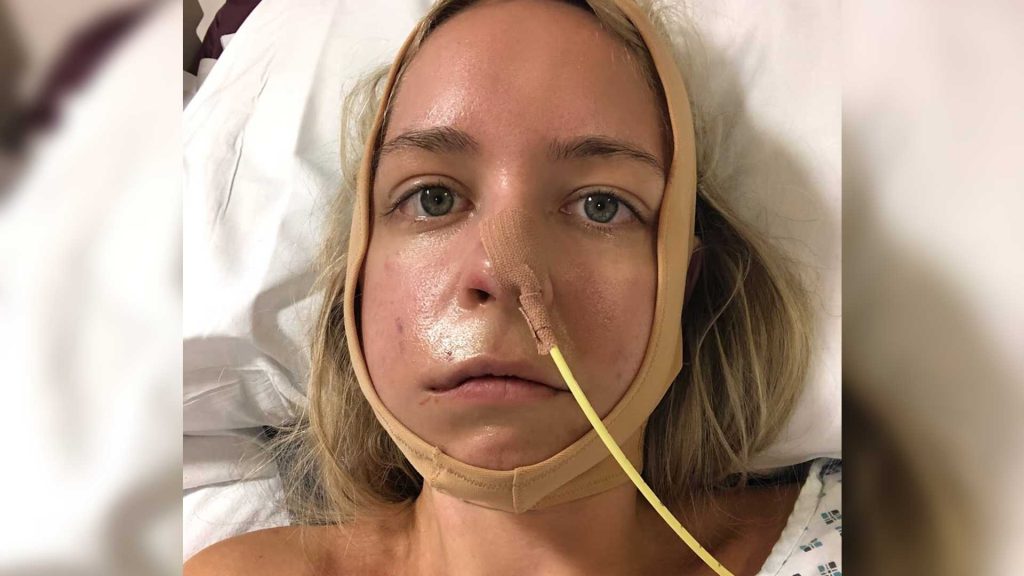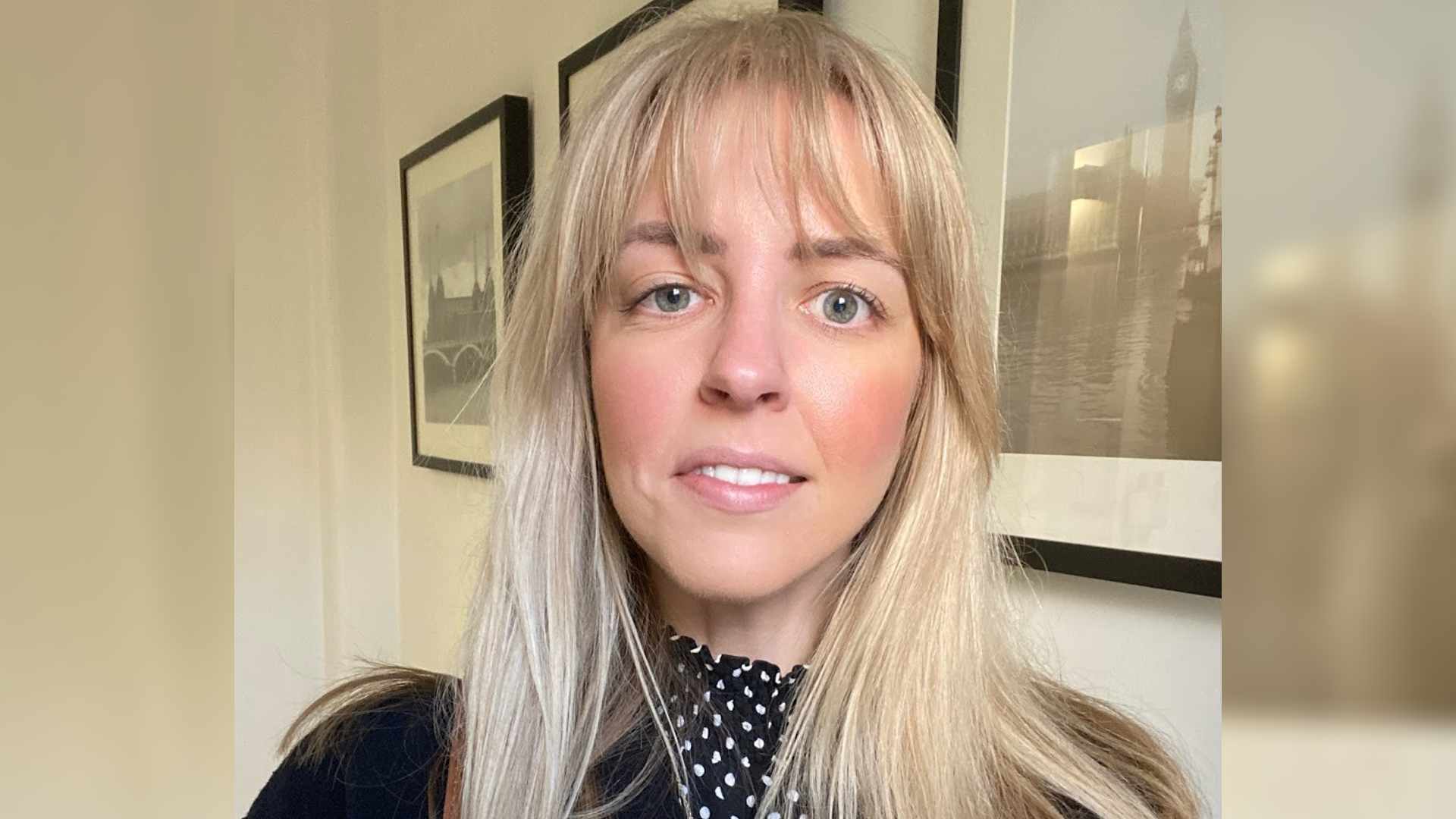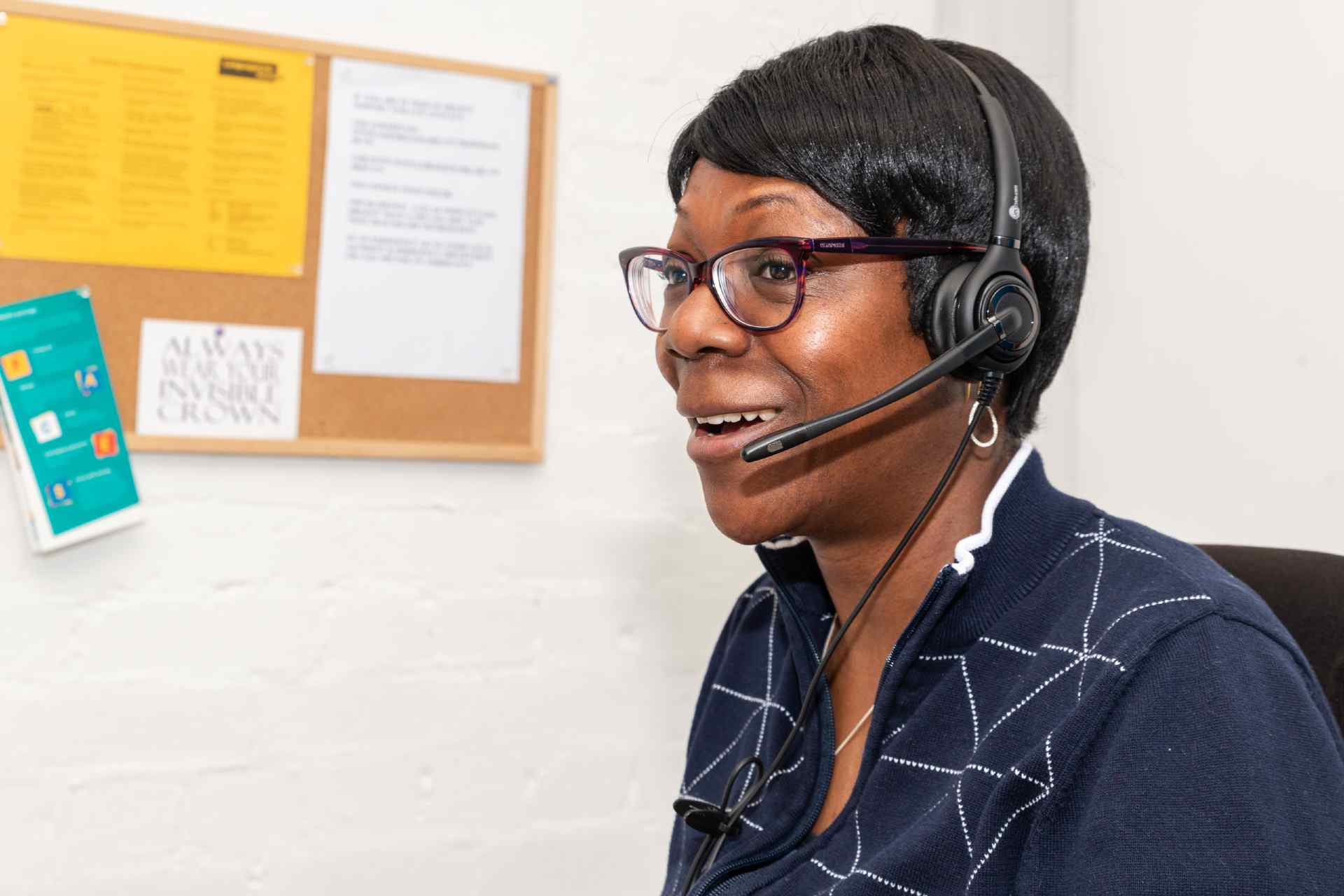I’m Sammy and when I was 25 years old, I woke up from brain tumour removal surgery with half of my face paralysed.
During the surgery I suffered a stroke, which left me with facial paralysis down the right side of my face, balance issues and oscillopsia, the sensation that the world is constantly moving.
My first concerns were learning how to walk and feed myself again, as well as relearning how to write, which was how I made my living. Then came the realisation that I looked different.
Developing a visible difference overnight meant the challenges it came with were very sudden and unknown to adapt to. I’d gone from being someone that attracted looks on the street for very different reasons, to suddenly having people stare because of my condition.
Whenever I’m triggered by comments now, I remember why I look the way I do and that it’s because of a surgery that saved my life.
The unhappiness and anxiety surrounding my visible difference were also heightened by being in the Instagram generation where I was reminded of very obvious before and after photos of me. I was unlike the images I was presented with on my feed and that was hard to deal with. Constantly seeing photos of others online, particularly of those around my age, living their lives and looking flawless, made me battle confidence and acceptance further. I’d compare myself to those images and be reminded that I wasn’t like them anymore.
In the beginning, the stares from others felt pitying, and it became very difficult to socialise and meet new people, which is something I’d always done easily before. I could tell my difference made others uncomfortable and they were unsure of what to say, so I often felt avoided altogether. I’d also been exposed to hurtful comments and impressions of my wonky smile after laughing in public, when the difference becomes more apparent.
Then I underwent facial reanimation surgery. I was the first person in the UK to have this procedure and only the third in the world. The goal was to get my expressions back on the right side of my face.

Sammy after her facial reanimation surgery
While my difference is still noticeable following the surgery, it became less so to the point that people now just question whether I’ve been to the dentist. I was grocery shopping recently when the cashier asked what procedure I’d had done at the dentist. I replied “none, I had a stroke which left me with facial paralysis.” That kind of comment used to send me into hiding a few years ago and would make me feel so unbelievably foolish for leaving the house looking the way I do. Now I don’t feel that way at all.
It was a stab to be reminded of my difference like that, but I was polite and factual in my response to her and carried on with my day. However, it proved how much work we have to do to normalise difference so that it’s not something that’s commented on in public. Whenever I’m triggered by comments now, I also remember why I look the way I do and that it’s because of a surgery that saved my life. The older I get and the more of life I experience, I appreciate that knowledge far more and it makes it far easier to accept the way I look now.
The NHS were incredible and still are to me on my recovery journey, but I’ve never been directed towards emotional support for my visible difference. For the longest time, I felt like I could pause and address the emotional side of my visible difference later, as I needed to keep pushing forward and recovering physically. But around a year ago, I started private counselling and continue to see my therapist on and off to this day. I didn’t realise how much I needed that support until I started receiving it, especially given that I was a confident and social person before.
In the last year I’ve found the confidence to travel solo again and meet new people and no longer feel that my difference will be an indication of the friendships I make or experiences I have. I definitely have therapy to thank for that slow gain of confidence.
I’d love for differences to become normalised so that people don’t feel ostracised or singled out for it in public or questioned as though it’s a flaw.
Acceptance is something that comes in waves and it’s okay to struggle with your appearance some days. Nostalgia and longing for an old version of you is something we all experience at some stage, and I know I’m not alone in comparing myself. Lots of people long for the same hair, same skin or same something that they once had, or others seem to have now. We shouldn’t be so hard on ourselves for this and should focus more on the traits we love about ourselves.
One of the biggest actions that has increased my confidence and self-esteem with a visible difference is by making a list of all the things I’m good at and have accomplished that have nothing to do with my appearance. This reminds me that my looks don’t define me or dictate the type of life I can live. Finding evidence to disprove the negative beliefs I had around never making new friends or never dating again because of my appearance also helped me increase my confidence. By listing all the ways these beliefs weren’t true, based on interactions I’d had with others, I was able to see that although it can be tough to be different, your external appearance is never representative of the person you are on the inside.
I think it’s great that we’re living in a world that is now increasingly focused on diversity and inclusion. However, I do feel – after regularly experiencing comments in my day-to-day life – that we still have more changes to see in the world. I’d love for differences to become normalised so that people don’t feel ostracised or singled out for it in public or questioned as though it’s a flaw.
I’ve still got a way to go on my acceptance journey, but every step forward is a reason to feel positive about the future.

